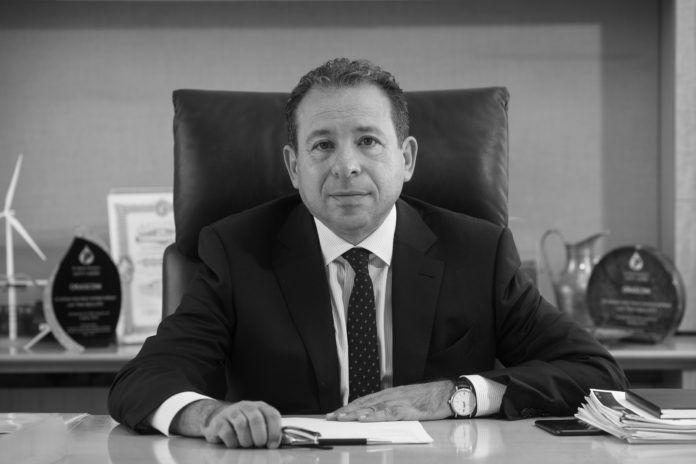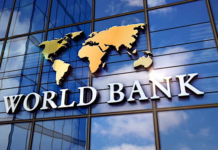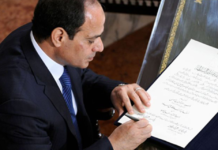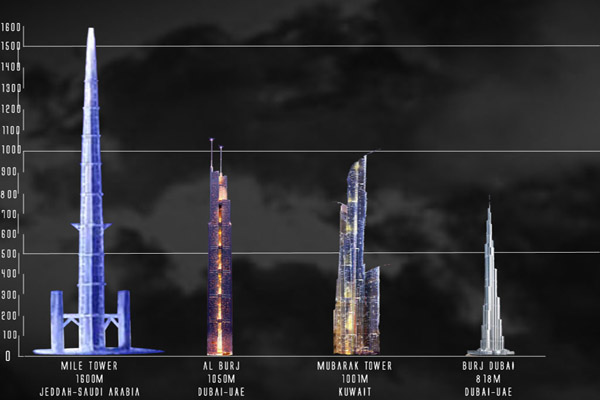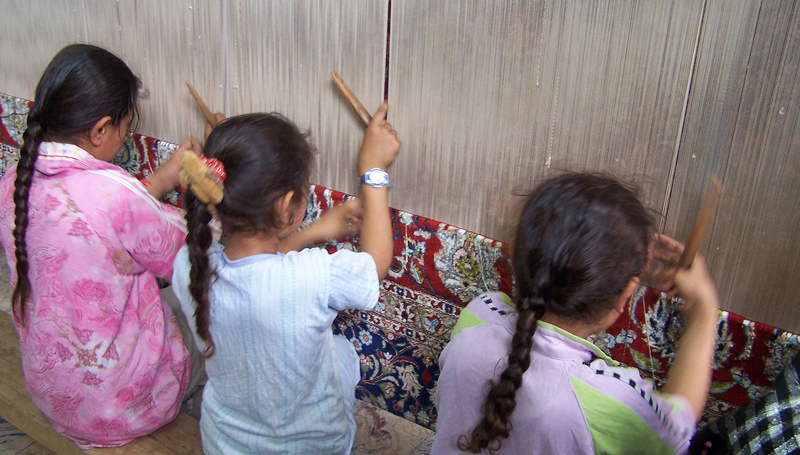If there is any industry that is most representative of Egypt’s economic recovery, it is construction and real estate, which is witnessing tremendous growth and shows no signs of slowing down.
According to a report by BNC Network released in August, the construction market grew 10.8 percent in 2017, well above the average of 5.3 percent witnessed in the previous four years. BNC also estimated that there were 1,400 construction projects worth $348.2 billion underway in the country – with $178.4 billion worth of projects in their early stages, “highlighting the projected growth of construction in Egypt”.
Perhaps the stand-out project amongst all these developments is the New Capital City project situated 50 kilometers east of Cairo. Expected to cost a staggering $45 billion, this new city will include residential areas to house millions of people, a 650-kilometer road network, a new airport, railway links, 1,250 mosques and churches, a 5,000-seat conference center, 2,000 schools and colleges, over 600 medical facilities and six international universities.
With Egypt’s young population growing rapidly, one of the government’s biggest challenges – and therefore priorities – is catering to the rising demand for housing, particularly for low and middle-income earners. Over the coming years, the government plans to add tens of thousands of new housing units to the market. In the New Capital City alone, 240,000 new housing units will be built between 2018 and 2023. In 2015, the government also launched a five-year plan to build five million subsidized homes for the poor. At the start of 2018, it was reported that 150,000 low-income units had already been delivered, while another 260,000 were under construction.
But it is not just the lower end of the property market which is seeing major development; high-end residential units are also sprouting up across the nation. Apartment and villa sales increased by 59 percent and 16 percent, respectively, in 2017, according to an annual report by real estate firm JLL, and performance is expected to remain strong, as a result of higher GDP growth and improved consumer sentiment. Another indication of strong growth in the property sector also came from PropertyFinder Egypt. The online real estate portal announced an increase in the number of registered properties on its website from 52,104 properties in 2016 to 119,240 properties in 2017, representing growth of 128.8 percent.
Egyptians are not the only ones expected to snap up property over the coming years. In an attempt boost investment from abroad, the government recently approved a new law which will allow foreigners to apply for a one-year residency permit if they buy property worth as little as $100,000. A three and five-year permit will be offered to those who acquire property worth $200,000 and $400,000 respectively. The new law is yet another initiative among a raft of promising measures that bode well for the construction and real estate sector and the economy as a whole.
Aside from housing, Egypt’s construction boom offers almost endless opportunities for foreign investors across the entire urban construction segment, which includes residential/commercial development, religious buildings, hospitality buildings, healthcare facilities, retail facilities and leisure facilities. BNC estimates that the value of urban construction projects across Egypt is around $115 billion. Residential/commercial buildings and mega-urban developments worth $90.5 billion make up 79 percent of the total project value; while hospitality projects, with an estimated value of $8 billion, make up 13 percent.
Of course all of these urban developments will require the supporting transport and utilities infrastructure, which is why tens of billions of dollars are being also poured into road, rail, airport, power and water projects. Two new international airports opened last year; and three more – Sphinx International Airport, the New Capital Airport, and Bredwell Airport in Sinai – are also in the pipeline. A high-speed rail line linking the Red Sea and Mediterranean Sea is also being constructed, as well as more than 4,300 kilometers of roads – not to mention the billions of dollars of developments linked to the Suez Canal Economic Zone.
Meanwhile, major power projects are also being implemented to meet the rapidly growing demand for electricity, which include a 6,600 MW coal-fired power plant in Ayoun Moussa, a 2,250 MW gas-fired plant in South Luxor and the world’s largest solar park, which, with capacity of 1.6-2 GW, is expected to eventually make up 20 percent of the nation’s power needs.
With tens of billions of dollars being pumped into everything from housing and commercial developments, to transport and power mega-projects, it is a truly a monumental time for Egypt’s construction industry. And at the beating heart of all this development is Orascom Construction, one of the nations’ leading engineering and construction contractors, whose project portfolio – primarily focused on infrastructure – spans the Middle East, North Africa, the United States, and the Pacific Rim.
As an industry insider, Orascom’s CEO, Osama Bishai, is particularly buoyant about the construction and infrastructure market in Egypt – growth of which will be driven by Egypt’s young population.
“The construction sector will continue to be a very crucial backbone of the economy for a lot of reasons, but my favorite reason is the population,” he says. “We are a very young population. Sixty million people are less than 29, so imagine the amount of continuous investment in housing, infrastructure, hospitals, and schools that is needed for this young population.”
Orascom has played an important role in the development of Egypt’s infrastructure over the past few decades – building everything from commercial buildings and hospitals to roads and power plants – and will continue to so. Between July and September this year alone, the company added $520m worth of projects to its backlog, with Egypt accounting for approximately 60 percent of that value.
Earlier this year, President Abdelfatah El-Sisi said Egypt will need to develop $900 billion worth of infrastructure over the coming years, and Orascom – which is heavily invested in megaprojects such as the New Capital City, amongst others – will play a crucial in supporting that goal.
“I think the number mentioned by the president is probably right; he has better exposure but yes there’s so much needed in this country today. The country is moving fast because that’s the will of the president and his administration. He is driving the speed, which is great because we like to do things at speed,” says Mr. Bishai.
“We are proud of so many projects. In the last three or four years, we have been fortunate enough to be involved in so much that we’re essentially touching the lives of everybody here. We are very much part of improving the quality of life. In power, we have added 11,000 MW. We’re building the metro in Egypt. We have built three hospitals in the last two years. We have constructed maybe a few thousand kilometers of road. We are involved in every single sector.”
Amongst all the projects Orascom has been involved in, there is one, however, that Mr. Bishai is particularly proud of – the new Grand Egyptian Museum, which is set to open in 2020. Covering a total land area of 490,000 square meters, the state-of-the-art museum campus will house 100,000 ancient Egyptian artifacts, and will also include exhibition galleries, a conference center, retail areas, restaurants, a conference center and a 1,000-seat auditorium. With the museum set to become one of Egypt’s most important centers of culture and heritage, which will be visited by millions from around the globe – it is no wonder that Orascom is so proud to have been entrusted to build this iconic project.
Located just a short distance from the new museum are the millennia-old Pyramids of Giza, a marvel of construction and engineering that are a constant reminder to the world of how the ancient Egyptians excelled in building. Today, Orascom continues to channel that ancient Egyptian tradition for engineering excellence, as it helps to build the Egypt of tomorrow.


